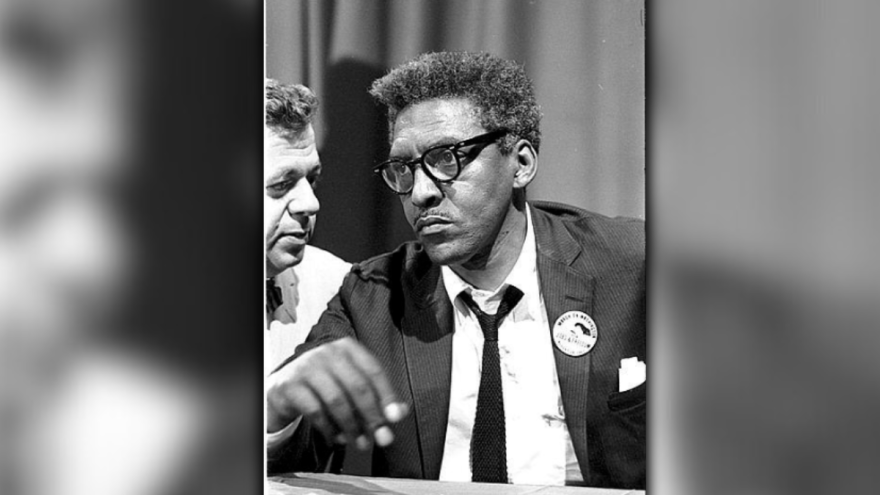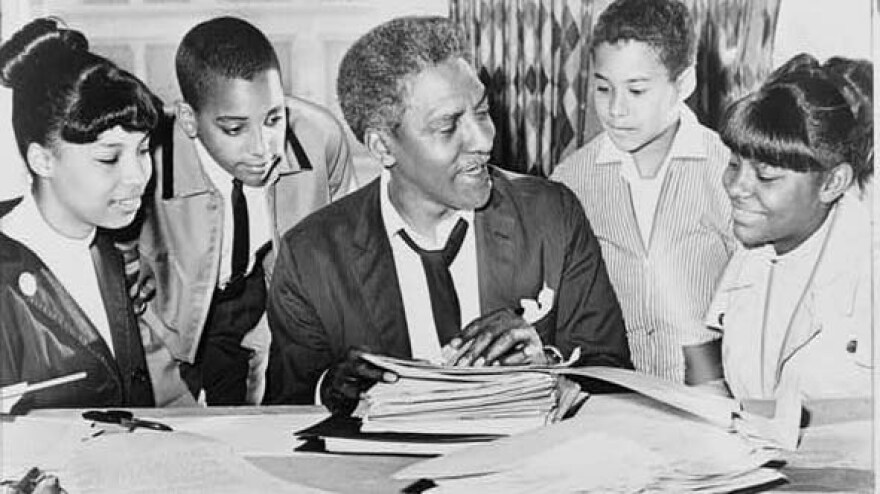The Oscar-nominated film “Rustin” sheds light on the closeted civil rights activist Bayard Rustin who organized the 1963 March on Washington which many consider the turning point in the Civil Rights Movement.
Until recently, Rustin was an overlooked figure in most histories in civil rights histories. But retired Old Dominion University professor Maurice Berube was a contemporary of Rustin and said he was a major leader who mentored many activists of the era.
“He was a radical, first and foremost,” said Berube, who knew Rustin personally. “He chartered a path for many civil rights leaders and radicals that we don’t know very much about in general society. He was a tremendous influence on my life.”
Rustin was a closeted gay man who was pushed from the front of activist circles because of his sexuality. Berube said today, Rustin would be much more accepted.
“We are much more open than back in the ’60s. Don’t forget, even then, if you were Black you could not eat at a white lunch counter. Bayard was way ahead of his time.”
Berube was thick in activist circles during the heyday of the civil rights movement. He worked for the teachers union in New York City and that’s where he crossed paths with Rustin.
Rustin was a pivotal figure in the early days of the civil rights movement, organizing freedom rides and the Southern Christian Leadership Conference, which boosted the Reverend Dr. Martin Luther King into a stronger national presence.
But his greatest effort lay in being the principal architect of the 1963 March on Washington at the Lincoln Memorial. It drew 200,000 people to hear speakers including Martin Luther King, Jr. deliver what became his most famous “I Have a Dream” speech.
“He does deserve credit for the march if nothing else,” Berube said of Rustin. “He was very serious and very much an intellectual.”
Rustin closed the March with these words: “The first demand is that we have effective civil rights legislation, no compromise, no filibuster, and that it includes public accommodation, decent housing, integrated education, FEPC and the right to vote.”


